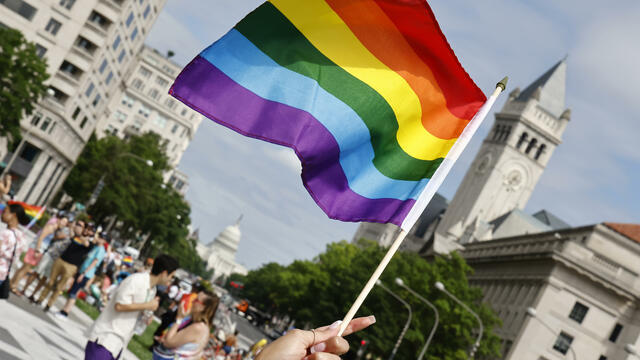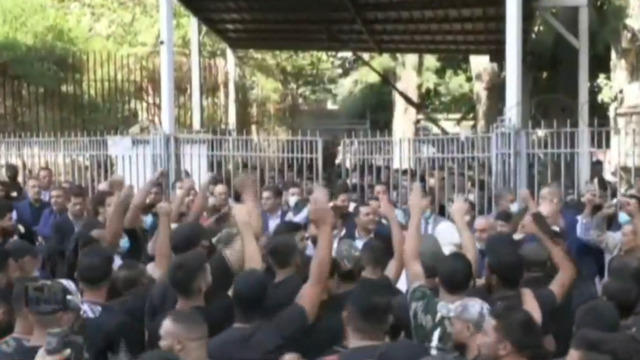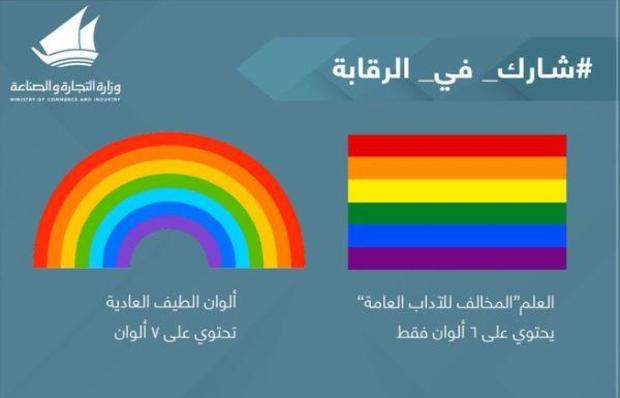▶ Watch Video: Growing concern over “Rainbow Capitalism” during Pride Month
June, global Pride Month, has seen several Arab nations launch campaigns specifically seeking to find and quash any support for the LGBTQ community. Lebanon was the latest nation to join the crackdown, with Interior Minister Bassam Mawlawi issuing a letter a week ago to Lebanese security forces ordering them to break up any events that “promote” homosexuality.
The letter, labelled “very urgent,” said that “after the spread of calls on social media to organize parties and events promoting homosexuality in Lebanon… and considering the negative consequences brought by this phenomenon on individuals and society” police and security forces should “take the necessary measures to ban any celebrations, meetings or gatherings aiming to promote this phenomenon and to report the results back.”
Helem (Arabic for Dream), an NGO that works in support of LGBTQ people across North Africa and Southwest Asia, said in a statement that it was “perplexing why, in a country whose citizens have no electricity, no medication, no access to clean water, and no social security, and 30% unemployment the minister thought to prioritize LGBTQ events as the biggest threat to national security.”
“The deliberate act of inciting moral sexual panic and targeting LGBTQ individuals is a very old, superficial, and commonly used tactic by failed regimes to draw attention away from economic and political disasters,” the organization said.
Lebanon is largely considered more LGBTQ-friendly than most Arab countries, but Helem said it was canceling a demonstration planned for Sunday out of fear for the safety of those who were to take part.
Some neighboring nations have targeted far-less-obvious manifestations of LGBTQ support.
Kuwait’s Ministry of Commerce and Industry put out the message on social media last week that citizens should inform the government about any products adorned with a rainbow flag, so that officials could remove the offending products.
To avoid confusion, the ministry issued a guideline to differentiate between a “normal rainbow” and the LGBTQ rainbow. The “normal” rainbow has seven colors, it said, while the one that “violates public morals” has six colors, it said in its post, which carried a “participate in censorship” hashtag.
Despite the ministry’s efforts to clarify its request, Kuwaitis quickly started tweeting the government account photos of all kinds of products — even buildings — adorned with rainbows, asking if they were in breach of “public morals.”
One user replied to the ministry’s appeal with a photo reporting an anti-bacterial hand spray. The ministry responded bluntly: “Not a violation.”
The Twitter user said he disagreed with the ruling, “but thanks for your concern.”
Saudi Arabian officials launched a nearly identical campaign earlier in June.
The Ministry of Commerce posted a video (below) on social media showing officials seizing rainbow-colored products, including toys, handbags and accessories, which they said carried “symbols and connotations that encourage homosexuality and contradict nature.”
Also in early June, Kuwait’s Foreign Ministry summoned the U.S. Embassy’s acting chargé d’affaires over an embassy tweet marking Pride Month, which included a quote from President Joe Biden and a rainbow flag.
Kuwait’s foreign ministry issued a statement saying the American diplomat had been told that the embassy should “not publish such tweets.”
Language may be a factor, as the U.S. embassies in Saudi Arabia, Bahrain and the United Arab Emirates posted similar messages in English but drew no apparent scrutiny. The tweet from the American embassy in Kuwait was posted in both English and Arabic. The statement by Kuwait’s Foreign Ministry chastising the U.S. embassy was issued only in Arabic.
Asked about the crackdown in Saudi Arabia on flag-adorned products a couple weeks ago, White House press secretary Karine Jean-Pierre said she wasn’t aware of the specific actions, but noted that the U.S. government worked “around the globe to protect LGBTQI+ persons from violence and abuse, criminalization, discrimination, and stigma and — and empower local LGBTQI+ movements and persons.”
She said any “official concerns” were always raised with “governments, both principal [publicly] and privately,” and added that the Biden administration sees “human rights as being universal.”
The International Lesbian, Gay, Bisexual, Trans and Intersex Association’s 2020 report on “State Sponsored Homophobia” around the world noted that Kuwait, Saudi Arabia and Lebanon were among 69 nations that have laws banning homosexual acts.
Saudi Arabia, the report noted, was among six United Nations member states where “the death penalty is the legally prescribed punishment for consensual same-sex sexual acts.”
CBS News’ Sean Conlon contributed to this report.




































